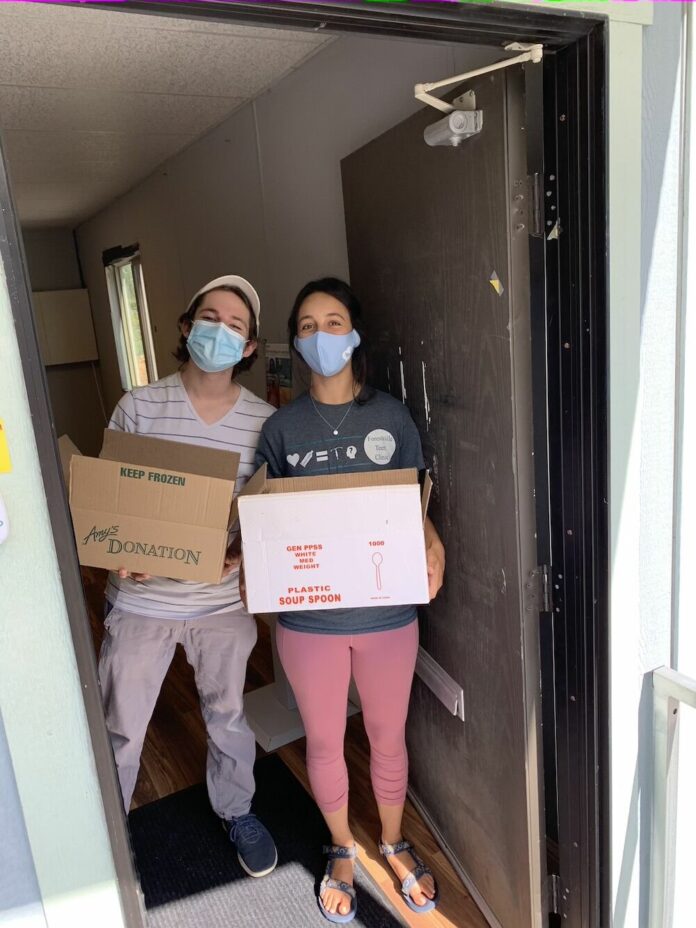
West County Teen Clinic is moving to Sebastopol for good to provide west county teens free and confidential sexual, reproductive and behavioral health services right where they’re at.
The peer-led clinic will open Aug. 2 at the Gravenstein Community Health Center on 652 Petaluma Ave., which previously housed the clinic part time.
Services will be offered Monday through Thursday from 1:30 p.m. to 5 p.m. for young people ages 12 to 25, according to teen clinic coordinator Erin Elo, the gender, sexuality and youth specialty services manager.
She said the doors will be unlocked from noon to 5:30 p.m. because in addition to offering health services, the clinic is meant to serve as a safe community space to hang out and do homework, too.
“Half of our building is a hang out space, a kitchen, an art wall, a lounge with a TV and music and books and tables,” Elo said. “And the other half is the clinical and reproductive health and behavioral health services.”
Dr. Jason Cunningham, chief executive officer of West County Health Centers (WCHC), that runs the clinic, said it will provide services like confidential family planning, testing and treatment for STIs and HIV, pregnancy testing, free condoms and emergency contraception.
Teens can also come in mental health counseling and gender expansive services, like support for changing one’s name or gender markers, hormone replacement therapy and management, and individual and family counseling and support groups.
Further, gender-affirming primary care and referrals for legal support, transgender advocates and gender-affirming surgery are offered as well, according to Cunningham.
Before the pandemic and especially now, depression, anxiety and other mental health issues are huge issues facing youth right now, Elo said, “and also, unfortunately, drug use is pretty high in the youth community.”
She said the clinic provides harm reduction therapy, talking to teens about reducing their drug use.
There are three therapists on staff for free sessions and community liaisons will be placed in a few local schools to connect students to resources at the clinic, WCHC or other services, Elo said. They will work with school therapists and counselors and respond to needs other staff have found.
The move to Sebastopol is not to step in line with the West Sonoma County Union High School District consolidations, but to boost access to these health services for teens wherever they are, Cunningham said.
This includes embedding the liaisons at the El Molino High School campus in Forestville where Laguna High School students will go this fall, West County High School in Sebastopol and the K-8 Guerneville School.
“We recognize that’s where people are at, that’s where teens are at, that’s where families are at,” Cunningham said. Teen-specific services are also available at the other health centers, he said.
A priority of WCHC’s is to increase access through the outspread reason and not consolidate all services in one area, like the Highway 101 corridor or Sebastopol, according to Cunningham.
The best part about connecting teens to sexual, reproductive and behavioral health resources for Elo is meeting teens where they are and being present for the needs they themselves say are important to them.
“I feel like often adults forget or have their own agenda of what young people need, so we just ask them,” she said. “Like, maybe I have my own agenda and we have our own ideas about what we think they need, but we just really try and say, ‘Okay, what is important to you today? How can we help?”
Often what they may need goes beyond the sexual and reproductive services, like conversations about what’s going on in their lives and building that trust, Elo said. Approachable staff ask how life is going, if they need resources or want to see a therapist or just a place to eat lunch and do homework, she said.
Teenage peer educators can open the door further for other youth to get informed and connected, providing most of the reproductive health education in the local schools, according to Cunningham.
They are trained in active listening, reproductive and gender expansive services, understanding and diagnosis of various diseases and screening for suicidality and behavioral health risks, he said. The peer educators can also go along with youth who would be more comfortable with that company in an exam room.
Elo said recruitment for another 10 to 12 peer educators starts around the beginning of the school year, from the second week of August to early September. It’s a school-year-long commitment and many peer educators are returning for this year as well, she said.
“I think the really important, life-giving, historically effective model is again this peer base, where we’re recognizing our most important asset is relationship and trust, and that happens by creating a space that is safe and teen-friendly,” Cunningham said, along with the services themselves and providing resources to the teens’ families as well.








